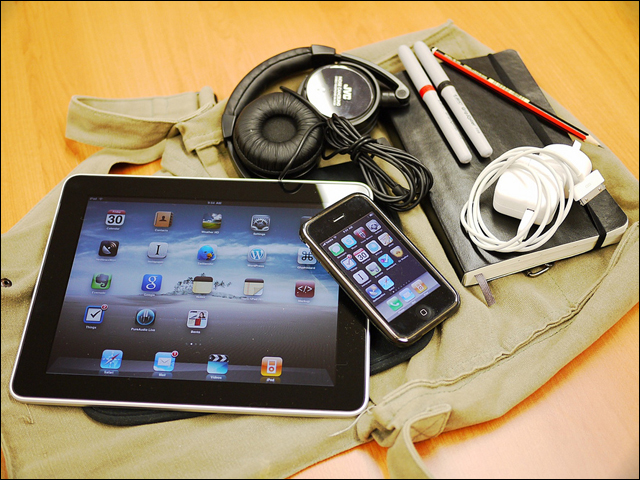Queensland’s Department of Education and Training has confirmed centrally controlled trials of 50 iPad devices in two state schools will begin in October, adding that some schools were already independently trialling Apple’s tablet device, as well as the smaller form factor iPod Touch.
“The department has commenced testing the suitability and compatibility of the iPad on the department’s network,” said David O’Hagan, the organisation’s assistant director-general of Information and Technologies. “Further classroom trials of up to 50 iPads will commence in primary and secondary schools in October.”
An official department trial of 20 iPod Touch devices is also currently in progress across several QLD schools. The iPods are used in various ways in the classroom — such as a reward device for students. For example, a student who performs well gets 10 minutes with the device to play games. O’Hare said the department would consider both Android and Windows based tablets once they were released in Australia to determine feasibility of their use within the network.
A crest of Android tablets is about to break on Australia. The Samsung Galaxy S Tab is due for launch in November, available across all carriers. Early this morning Dell revealed its smaller Streak tablet would be available to Australians via Optus in November. Other major manufacturers are also to be rumored to bring Android tablets to Australia before the end of the year.
“They have potential to allow some great things to happen in the classroom but are not a replacement for a full-sized device when it comes to creativity and content creation,” said O’Hagan in relation to handheld computers. “These products are supplementary devices to complement existing ICT in schools.”
O’Hagan acknowledged that some schools across the state had already purchased handheld devices to review the devices’ place within the educational bodies.
“Some schools have purchased handheld devices to assess usability and fit with teaching and learning in individual schools,” he said. “School principals, in consultation with the school community are responsible for selecting and purchasing ICT products for their individual school.”
When the iPad was first released in Australia back in May, Victoria’s education department announced a trial of 500 iPads in seven Victorian public schools. Not to be left out, the University of Adelaide heralded last week that students who enroll in science degrees will receive a Apple tablet device for free.
Western Australia’s Department of Education and Training confirmed last week that iPads were being purchased by schools – independently of the states core technology purchasing programs.
“The department does not have a policy on the use of iPads or Android-based technology at this stage, however some schools have bought tablet devices to trial in various settings,” said departmental chief information officer Bevan Doyle. “There appears to be a level of interest in this technology for educational use.”
A few Australian State Education departments have refused so far to officially get on the handheld computer bandwagon. Tasmania says that the technology is too new to determine the feasibility of use in public schools and NSW is waiting until it replaces CIO Stephen Wilson, who departed to join the technology ranks at Qantas.
Image credit: Matthew Packer, Creative commons


This is good to see. Tablets are cheaper than laptops and can have much longer battery lives, which means they can be rolled out to schools without a massive investment in installing extra power points.
Tablets will also let students interact with what they’re learning in new, more effective ways than using traditional PCs and books. They will be able to carry around their entire textbook collection. The textbooks themselves will evolve to become more interactive – maths problems that explain themselves, English texts that can be annotated and the annotations shared with other students or the teacher, being able to explore history in more detail than any book, and interactive science diagrams. These are just the start of what can be done. When done right, these tablets will expand students’ knowledge and understanding and engage them in their own education. Besides, the world is heading towards ubiquitous mobile computing, and students need to be prepared for that.
Comments are closed.